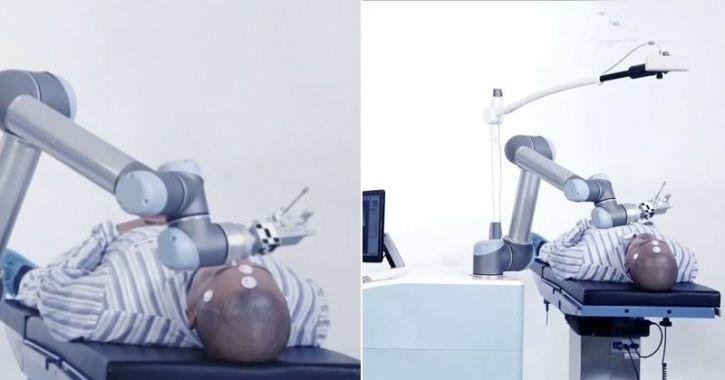The Cutting Edge of Healthcare: China's Advances in Medical Tech
Technology can be a double-edged sword, but if there's one area in which we can generally agree that advancements are positive, it's the field of medicine. From Beijing and beyond, China is constantly updating its hospitals with the latest and greatest in technological advancements. Here's what you need to know from the latest round of upgrades to the capital's healthcare operations.
Beijing hospitals to roll out mobile payments and online test results checks
Beijing first piloted a program that allowed patients to pay for medical care through WeChat and Alipay in 2014, and today most major hospitals are equipped to handle cashless visitors. By the end of September though, all medical and healthcare facilities in Beijing will accept mobile payments, even in the suburbs, so there's no need to worry if you don't have your wallet on you after taking a tumble on your bike.
This year, hospitals have also been trying out a system that lets patients check the results of their medical tests online. The aim is to make the system available from all hospitals in Beijing by December in order to provide greater convenience to those in rural areas, but for now only certain hospitals in Xicheng, Chaoyang, Daxing, and Changping districts provide the service.
Invasion of the robot doctors
Even as Chinese-American 2020 US presidential candidate Andrew Yang frets over the incoming wave of robotic technology and its implications for employment, over in the mainland, visitors to Beijing’s World Robotics Conference marveled at the medical possibilities presented by advances in the field.

Robots in China are now performing everything from bone surgery to brain surgery. Remebot, China’s first neurosurgery robot, has performed over 17 minimally invasive surgeries this year, operating in a way that does not necessitate cutting a significant hole in the skull and therefore minimizing blood loss.
READ: Beijing Doctor Performs 3 5G-Powered Surgeries Simultaneously
Other medical robots in attendance showed off their abilities, which ranged from bone surgery to rehabilitation training. Robotic relief is a welcome addition to Beijing’s healthcare community, where reports of overworked staff are all too common. Though these new technologies may require additional training at first, the hope is that doctors will soon be able to perform surgeries remotely using 5G teleoperations, which could greatly free up local staff.
China looks to crowdsourcing apps for healthcare help
The country’s rising insurance premiums have prompted internet giants like Tencent and Alibaba to launch apps that offer insurance alternatives. Aggressive online marketing campaigns have attracted users in the tens of millions to hop aboard Xiang Hu Bao by Ant Financial and Waterdrop by Tencent. Through crowdsourced financing and cost-cutting AI-driven claims processing, such apps help to provide much-needed relief for those who are already sick.
Thanks to Alibaba’s established place in the world of finance, it has been able to integrate Xiang Hu Bao with its other apps and programs. That means users can easily make online payments using Alipay, but it also means that in order to do so they must qualify with a sufficient credit score on their Sesame Credit system. For some, all this integration calls into question the motivations of the companies, and as at least one study has found, potential customers have been turned off by instances where these companies have misused user data.
READ: China's Internet Court Brings Cyber Justice to the Masses
Images: China Daily, Shuzi Biaopai, Indiatimes







